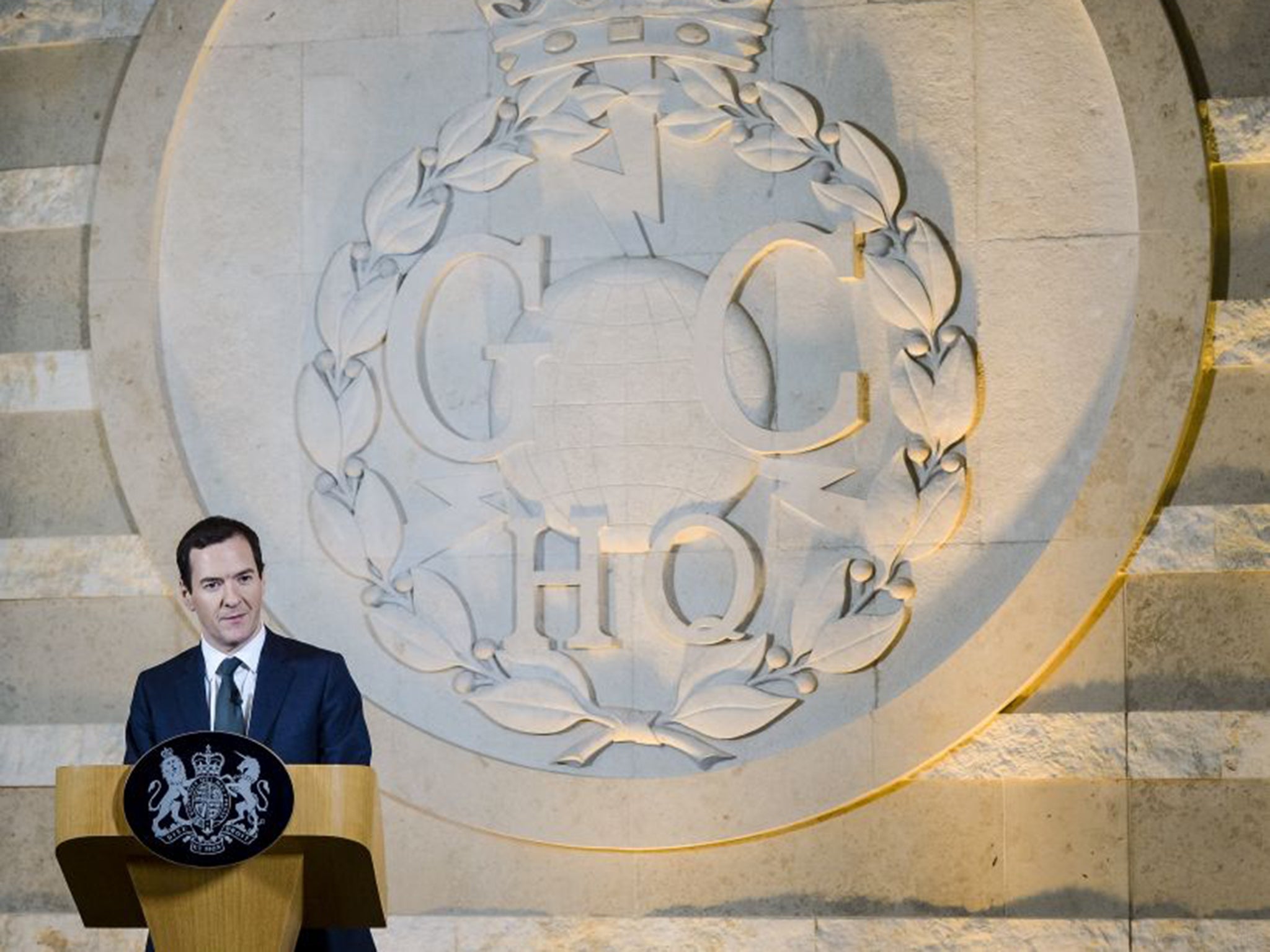George Osborne to highlight dangers around EU referendum in anti-austerity Budget
Chancellor's sombre statement risks sparking accusations he is using the Budget to 'play referendum games'

George Osborne is expected to postpone fresh austerity measures this week until 2018 as part of a highly political Budget which will emphasise the dangers to the world economy ahead of the EU referendum this summer.
The Chancellor will tell MPs, in a sombre statement dominated by warnings about “global pressures” and “risks” to the UK, that new spending cuts will be needed to “maintain Britain’s economic security”. But Mr Osborne will resist imposing any new spending cuts this year or next, The Independent on Sunday understands. It comes amid claims – not rejected by the Treasury – that an £18bn black hole has opened up in the Government’s finances because of the economy’s weaker than projected state.
Mr Osborne’s stark message risks sparking accusations that he is using this week’s set-piece Commons event to drive home the Government’s “Project Fear” campaign highlighting the dangers of leaving the EU. Eurosceptic Tory MPs went as far as to warn Mr Osborne publicly not to “play referendum games” with the Budget.
However, an exclusive poll for The IoS today reveals widespread dissatisfaction with Mr Osborne’s record as Chancellor and growing concern about the state of the economy. A majority of the public – 51 per cent – says the British economy is no better off now than it was this time last year, with just a third disagreeing.
Two-thirds of the public also claim their personal financial situation has not improved over the past 12 months, compared with 26 per cent who say it has.
The public concern about the state of the economy – five years after Mr Osborne took over as Chancellor – is reflected in growing dissatisfaction with his record. People are now more likely to believe he has done a bad job in the Treasury than a good one. Overall, four out of 10 say they are unhappy with his record as Chancellor, compared with less than a third who are satisfied.
However, in a blow to Labour’s hopes of capitalising on public concern, the public is still far more likely to trust the Conservatives on the economy than Labour.
Nearly half – 45 per cent – say they trust David Cameron and Mr Osborne more than Jeremy Corbyn and John McDonnell to run the economy, compared with 29 per cent who say the same of the Labour pair.
Mr Osborne is expected to use this Budget to expose Labour’s difficulties in winning back public trust to run the economy, emphasising Mr McDonnell’s plan last week to borrow billions of pounds to invest in infrastructure projects while running a balanced day-to-day budget.
A senior government source told The IoS that this week’s Budget would not be could not be characterised as “an austerity budget” – with the spending plans for 2016 and 2017 outlined in last year’s statement set to remain broadly unchanged. The savings expected to be outlined by Mr Osborne will come “at the end of the spending review period” closer to the next election.
The source said: “The overall feel of the Budget will be about global pressures, slowing growth, commodity prices … the referendum too. This is a risky period we are in and we have to be ahead of that. Britain can’t be immune from what is going on in the rest of the world. Every major country has been downgraded. We need to respond to what’s happening, to make sure we can maintain economic security.”
Senior Conservative MP Bernard Jenkin warned the Chancellor not to use the Budget as a campaigning tool to keep Britain in the EU. He said: “The Chancellor should concentrate on the day job or running the economy. He’s got enough on his plate without playing referendum games with the economy.”
Mr Osborne will attempt to placate Tory MPs by raising the threshold at which people start paying the 40p tax rate – a key manifesto commitment. The Tories pledged to raise the threshold for the 40p rate to £50,000 by 2020. The Government is also committed to raising the point at which low earners start paying income tax to £12,500.
However, a senior government source played down the Government’s ability to make significant tax cuts, saying: “It’s all quite tight in terms of room for manoeuvre.”
Mr Osborne is also expected to set out a series of “stealth” taxes to help to raise funds to plug the growing hole in the public finances, including an increase on fuel duty of up to 2p a litre and a hike in the tax on insurance. Millions of households could face an increase in insurance costs, following a warning that the Chancellor may target premiums in next week’s Budget.
Welfare cuts for disabled people could also raise up to £1bn according to some estimates. There is speculation Mr Osborne could find the cash for a headline-grabbing cut on beer duty.
Subscribe to Independent Premium to bookmark this article
Want to bookmark your favourite articles and stories to read or reference later? Start your Independent Premium subscription today.

Join our commenting forum
Join thought-provoking conversations, follow other Independent readers and see their replies